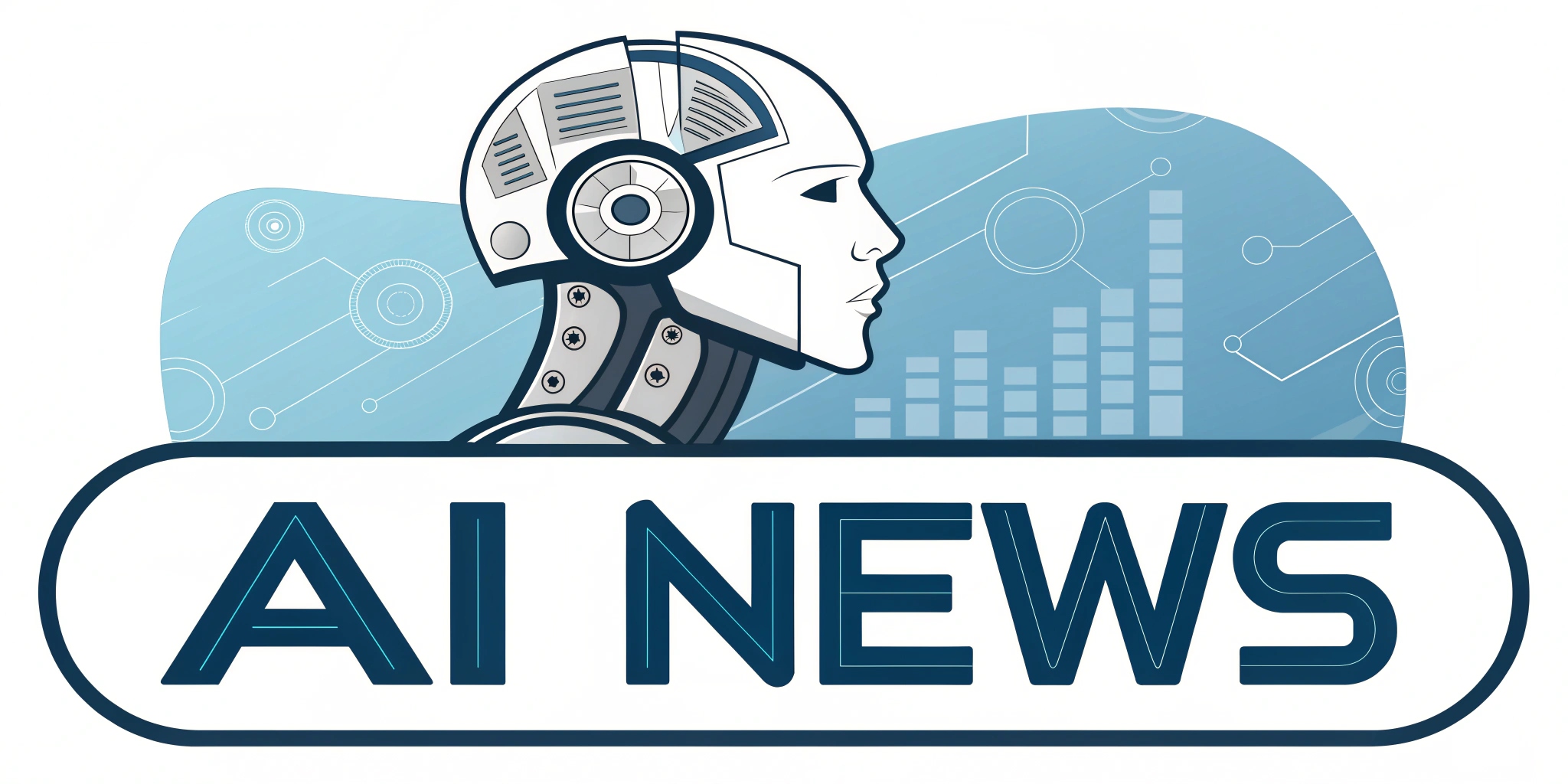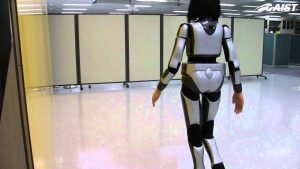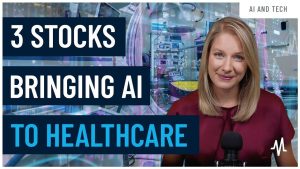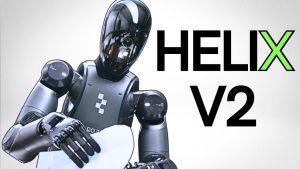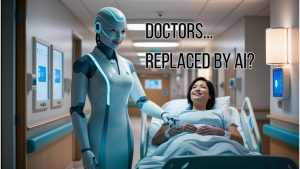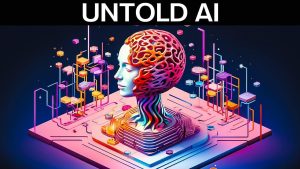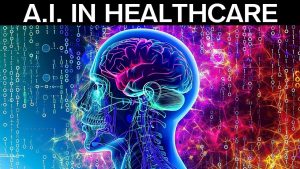In a recent commentary that has sparked notable discussion, tech visionary Bill Gates suggested a future where the reliance on human labour in many fields may diminish drastically due to advancements in artificial intelligence (AI). “Will we still need humans? Not for most things,” Gates replied when asked about the implications of AI on the job market. His remarks echo a growing trepidation among many regarding the fast-paced evolution of AI technology and its potential to reshape the workforce. As Gates emphasizes, the transformation could lead to a paradigm where highly skilled tasks, such as medicine and education, become commonplace with AI, raising vital questions about the nature of work and employment in the coming decade. While he acknowledges the profound benefits AI could bring, such as alleviating shortages in healthcare and education, Gates also reflects on the uncertainties and fears that accompany such sweeping changes. As society grapples with these emerging realities,discussions about the future of work,economic implications,and the role of human intelligence in an AI-driven world are more crucial than ever.
The Future of Work: Understanding AI’s Impact on Jobs and Employment
The dialog surrounding the integration of artificial intelligence in the workforce has ignited a plethora of responses from various sectors. Many experts suggest that AI’s capabilities might lead to a reevaluation of traditional roles, notably in areas currently dominated by human labor. Some potential ramifications include:
- Job displacement: Many low-skill positions could vanish as machines take over repetitive tasks.
- Emergence of new roles: The evolution of AI may create jobs focused on oversight, maintenance, and ethical considerations surrounding AI systems.
- Skill redefinition: A shift in the required skill sets may prompt educational institutions to adapt curriculums ensuring the workforce is prepared for high-tech industries.
Moreover, the impact of AI is not solely binary; it is poised to transform sectors variably, enhancing certain functions while diminishing others. Sectors such as healthcare stand to benefit substantially by automating processes, but this also raises concerns about the human touch and decision-making in critical situations. As AI systems become capable of managing intricate tasks, the conversation must evolve to consider the balance between efficiency and the irreplaceable nuances of human judgment and creativity.
Economic Implications of AI: Opportunities and Challenges Ahead
The anticipated economic repercussions of artificial intelligence herald both unprecedented opportunities and formidable challenges. Among the promising prospects, AI technology has the potential to significantly boost productivity and economic growth across various industries. Some of the anticipated advantages include:
- Enhanced efficiency: AI systems streamline operations,reducing the time and resources needed to complete tasks.
- Cost savings: Businesses can lower operational expenses through automation, reallocating funds to innovation and development.
- Global competitiveness: Companies leveraging AI may gain a competitive edge in the global market, leading to economic expansion.
However,these advancements are accompanied by notable challenges that warrant thorough examination. The transition towards an AI-dominated landscape raises ethical concerns regarding wealth distribution and labor rights. As automation potentially leads to job losses, particularly in traditional sectors, societal responses will be crucial in addressing:
- Economic inequality: A divide may emerge between those who benefit from AI advancements and those left behind.
- Policy implications: Governments may need to introduce new regulations and safety nets to support displaced workers.
- Future of innovation: Striking a balance between technological progress and preserving human employment will be essential for sustained economic growth.
The Role of Human Intelligence: Adapting in an AI-Driven World
In a landscape increasingly dominated by artificial intelligence,the adaptability of human intelligence becomes paramount. As AI tools evolve, individuals must cultivate skills that complement and enhance machine capabilities. This integration presents an possibility for humans to focus on critical thinking, creativity, and emotional intelligence—traits that remain challenging for AI to replicate. By embracing lifelong learning and adaptability,workers can position themselves to thrive amidst technological upheaval. As traditional roles shift, the demand for versatile skill sets will only grow, prompting a reevaluation of education and professional development to better equip individuals for future challenges.
Moreover,the ethical implications of AI’s rise cannot be overlooked,as humans play a crucial role in ensuring these systems are designed and implemented responsibly. Collaboration between humans and AI holds the potential to address complex global issues, such as healthcare distribution and climate change, where human understanding and ethical decision-making are essential. The ability to combine AI’s analytical prowess with human intuition and ethics could lead to solutions that honor both technological advancement and societal values.Engaging in this holistic approach will help shape a future where human intelligence is not rendered obsolete but rather,is vital to the intelligent deployment of AI technologies.
Strategies for Navigating Change: Preparing for a New Job Landscape
Adapting to an evolving job landscape necessitates a proactive approach, where individuals seek to understand and harness the capabilities of AI rather than resist them. To stay competitive, fostering a mindset centered on continuous learning is essential. Workers should consider engaging in training programs that enhance their technological proficiency, particularly in areas like data analysis, programming, and AI ethics. Embracing networking opportunities can facilitate connections with industry leaders and like-minded individuals, enhancing one’s adaptability to market shifts. Potential strategies include:
- Upskilling: Participating in workshops or online courses related to emerging technologies.
- Mentorship: Seeking guidance from experienced professionals in AI-focused fields.
- Industry events: Attending conferences to stay informed about the latest developments and trends.
Building a diverse skill set is not just about technical know-how; it also involves developing soft skills that AI cannot easily replicate. Emotional intelligence, collaboration, and strategic problem-solving are increasingly valued as industries adapt to new challenges. Organizations are likely to prioritize candidates who possess the ability to navigate interpersonal dynamics and foster teamwork in an AI-enhanced environment. Hence, cultivating these attributes allows individuals to remain relevant, ensuring they contribute meaningfully in a workplace where AI plays a significant role. Focus on:
- Effective Communication: Enhancing the ability to convey complex ideas succinctly.
- Creative Thinking: Nurturing innovation through brainstorming and open discussions.
- Adaptability: Remaining flexible in the face of changing technologies and business models.
